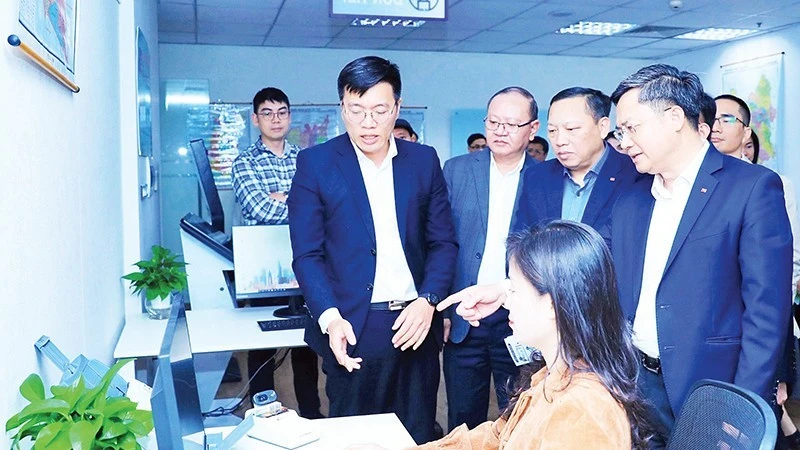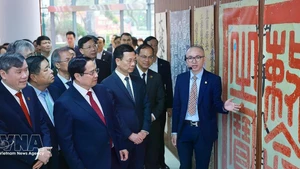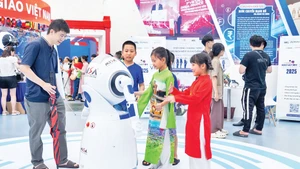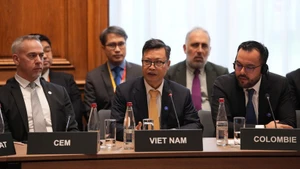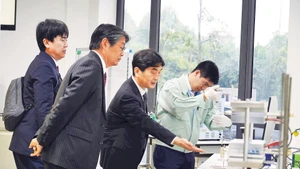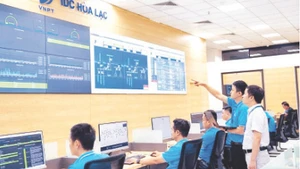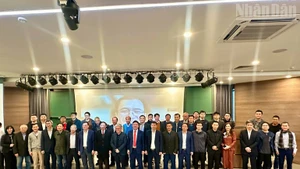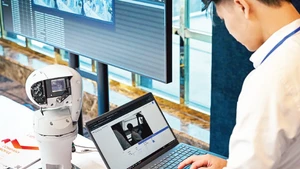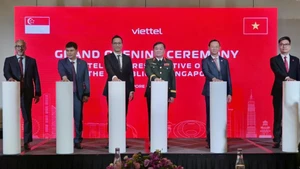In his articles and speeches at major conferences, General Secretary To Lam, who also serves as Head of the Central Steering Committee on Science, Technology, Innovation, and Digital Transformation, has consistently underlined that breakthroughs in these fields are essential for the country’s future.
In line with Resolution No. 57-NQ/TW and the directives of the General Secretary, there has been a unified awareness and action across the political system, recognising science and technology, innovation, and digital transformation as strategic tasks of the entire Party and people.
Central agencies have taken the lead. Party committees, authorities, and localities have developed concrete plans aligned with the resolution’s objectives, with clearly defined tasks, responsibilities, deadlines, and measurable outcomes.
The Central Steering Committee on Science, Technology, Innovation, and Digital Transformation has issued and directed the implementation of two major action plans: Plan No. 01-KH/BCDTW (June 2, 2025) on strategic actions to realise Resolution No. 57-NQ/TW, and Plan No. 02-KH/BCDTW (June 19, 2025) on promoting fast, synchronised, and effective digital transformation to meet the requirements of restructuring the political system’s organisational apparatus.

At its mid-2025 review conference, the Central Steering Committee noted significant progress in awareness and action across the political system. With the spirit that Party agencies must lead digital transformation, the Party Committee of Central Agencies established its own Steering Committee for Digital Transformation, assigned members, and launched an operational information system within its offices.
Subordinate Party committees have issued plans to implement the resolution, promoted the “digital literacy for all” campaign, and launched inspections in 2025 to comprehensively evaluate performance, particularly in digital transformation, information technology application, and related regulations and guidelines.
Alongside online learning sessions connected with central-level meetings, training classes were organised for organisational officers to use new software tools, such as monitoring congress preparations via the VNeID application.
Training was also provided on operating the internal information system and official email, handling documents digitally, and applying electronic signatures for leaders.
The Party Committees have introduced cybersecurity measures to ensure the secure transmission of classified documents, redesigned workflows for processing digital documents, and advanced efforts to digitise and archive records, building toward a shared database.
Subordinate Party committees have directed units and members to study Resolution No. 57-NQ/TW through diverse formats, implemented e-document management systems integrated with databases on personnel, tasks, and schedules, and coordinated with the Party Central Committee’s Organisation Commission to build an integrated personnel data portal.
According to Central Party Agencies' Party Committee, all specialised staff have received training in managing digital systems, data security, and connecting organisational data between central and strategic advisory bodies to support rapid and accurate decision-making.
The “Central-level Personnel Database” platform has been completed and put into operation, ensuring synchronisation, accuracy, and real-time updates. A data analytics portal is being developed to support planning, evaluation, and rotation of personnel, incorporating AI for trend analysis and scenario recommendations.
At Party advisory bodies, digital platforms have been effectively deployed, including the “E-Propaganda” system connecting propaganda materials, reports, and directives from the central to grassroots levels; a social opinion data centre providing real-time monitoring and analysis of information from media and online sources; a database on “Internal Affairs and Anti-Corruption Cases” for progress tracking and unified direction; and a “Digital Case Map” application visualising hotspots in internal affairs nationwide, connected to data systems of the Supreme People’s Procuracy and the Supreme People’s Court.
In inspection and supervision, the “digital inspection” system enables real-time monitoring of implementation progress, with alerts on delays or failures. The “e-inspection dossier” software has been developed to store complete records and allow quick retrieval. A pilot “automated supervision” model has also been tested in agencies with low public investment disbursement rates, helping identify causes and recommend timely solutions.
Digital transformation in the Party Committee of Central Agencies has enabled officials and staff to handle tasks anytime and anywhere, saving time and resources.
However, challenges remain, including incomplete technical infrastructure and a shortage of IT and cybersecurity specialists. These issues require further attention and direction from Party committees at all levels to ensure safe and uninterrupted system operations.
